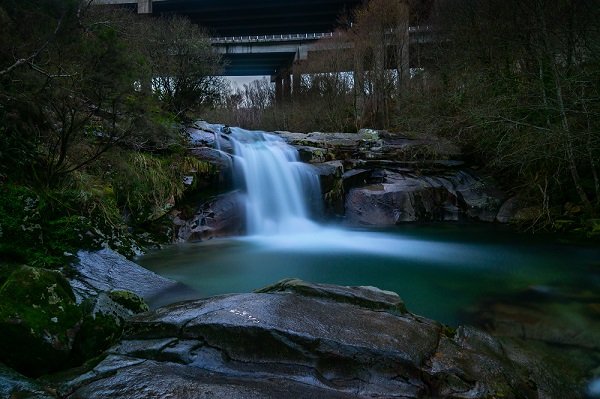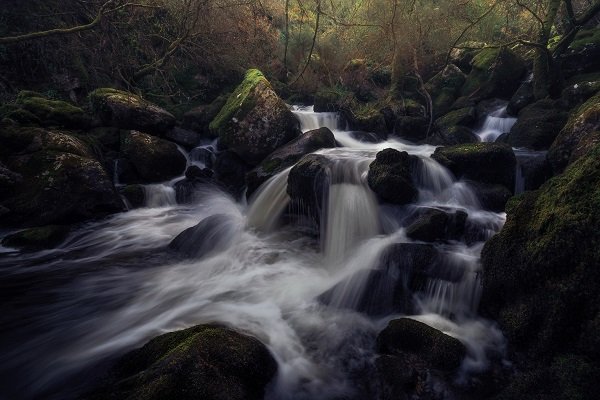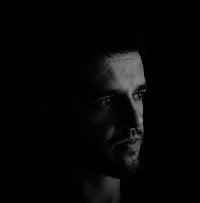¡Hola a todos de nuevo!
Hi again, everybody
En mi post de hoy, quiero hablar y mostrar como ha sido mi evolución a través del tiempo en el mundo de la fotografía de paisaje.
In today's post, I want to talk and show how has been my evolution through time in the world of landscape photography.
Hablemos!
Let's talk
Empecé allá por el 2018 a realizar mis primeras fotografías de paisaje. No llevo muchos años en este mundillo, pero me ha servido para aprender de forma autodidacta a componer, exponer y desarrollar un procesado personal con el que actualmente estoy satisfecho.
Esto no quiere decir que deje de aprender. Soy de los que opina que es muy importante el seguir disfrutando de nuevo contenido (la conocida formación continua) para seguir aprendiendo nuevas técnicas.
Y como ya he comentado en mi anterior post. Creo que es muy importante nutrirse de otros fotógrafos. Da igual que no sea de tu estilo, ni trabaje tu misma disciplina. Eso es lo interesante, ampliar tus horizontes, practicar y probar todas las formas de la fotografía.
I started back in 2018 to take my first landscape photographs. I have not been in this little world for many years, but it has helped me to learn in a self-taught way to compose, expose and develop a personal processing with which I am currently satisfied.
This does not mean that I stop learning. I am one of those who believe that it is very important to keep enjoying new content (known as continuous training) to continue learning new techniques.
And as I said in my previous post. I think it is very important to be nourished by other photographers. It doesn't matter if it's not your style, or if they don't work in your same discipline. That's what's interesting, broaden your horizons, practice and try all forms of photography.
Mi primera cámara con la que he realizado la siguiente fotografía es una Nikon
D3400. Una cámara réflex con la que aprendí todo lo que ahora sé. Es una cámara de iniciación, objetivamente barata y que recomiendo para todo aquel que se aventure en este mundo de la fotografía.
My first camera with which I have taken the following photograph is a Nikon D3400. A reflex camera with which I learned everything I know now. It is a camera of initiation, objectively cheap and that I recommend for anyone who ventures into this world of photography.
Mi primera fotografía!
My first photograph!

NikonD3400 | Samyang14mm | F18 | 14mm | ISO200 | 130s
Es una fotografía que puede gustar más o menos. Pero en este caso como quiero comparar mi primera fotografía con la última quiero criticarla para que se vean un poco los errores que he cometido.
It is a photograph that can be liked more or less. But in this case, as I want to compare my first photograph with the last one, I want to criticize it so that you can see the mistakes I have made.
Como podéis observar, es una fotografía de larga exposición en una catarata. Usé un filtro ND de 10 pasos.
El primer error que puedo apreciar, es el no saber calcular el tiempo de exposición con un filtro ND. La fotografía ha quedado muy subexpuesta.
Quizás otro de los errores que he cometido y más si cabe en fotografía de ríos, cascadas... No usar un filtro polarizador. ¿Por qué?
Porque en las rocas del primer plano y en las del fondo también, resalta un destello de luz por el brillo de la humedad de las rocas. Si la exposición de esta fotografía fuese correcta, esos brillos de las rocas quemarían las luces de la imagen. El filtro polarizador, una de sus funciones es el de evitar los reflejos en rocas.
Quizás otro error también es componer la fotografía con el puente de la carretera en la parte superior. Es un elemento que nada tiene que ver con la naturaleza y se podía evitar.
Estos son algunos de los detalles que cuando empiezas en fotografía no aprecias, y a medida que avanzas los ves con más claridad.
As you can see, this is a long exposure photograph of a waterfall. I used a 10-stop ND
filter of 10 steps.
The first mistake I can see is not knowing how to calculate the exposure time with an ND filter. The photograph was very underexposed.
Perhaps another of the mistakes I have made and even more so when photographing rivers, waterfalls... Not using a polarizing filter. Not using a polarizing filter. Why?
Because in the rocks in the foreground and in the background as well, a flash of light stands out due to the brightness of the humidity of the rocks. If the exposure of this photograph were correct, the glare from the rocks would burn out the highlights in the image. The polarizing filter, one of its functions is to avoid reflections on rocks.
Perhaps another mistake is to compose the photograph with the road bridge at the top. It is an element that has nothing to do with nature and could have been avoided.
These are some of the details that when you start in photography you do not appreciate, and as you advance you see them more clearly.
Esta es mi última fotografía!
This is my last photograph!

Sony ILCE-7M2 | FE 16-35mm F4 ZA OSS | 16mm | f16 | 0,3 | ISO 100
Partiendo de que quizás no es un estilo de fotografía que puede gustarle a todo el mundo y que he usado la cámara que tengo actualmente. (Sony A7II)...
La exposición usada es la correcta. Posteriormente en edición he usado un procesado oscuro dejando la iluminación natural entrando por la parte superior como a mí me gusta y he apreciado en directo.
Con el tiempo y la experiencia los gustos cambian. En mi caso he pasado de usar largas exposiciones de minutos para el agua, a usar segundos o fragmentos de segundo para que el agua tenga textura. (Particularmente, opino que las texturas en el agua le dan mucha fuerza y presencia a la imagen).
Los tonos, el encuadre... Todo cambia y se mejora con el tiempo.
En concreto en esta imagen no he usado ningún filtro ND.
Pero sí he usado un filtro polarizador. Se puede apreciar la diferencia en la ausencia de brillos molestos en las rocas.
El gran cambio del color azul del agua. Que muchas veces nos olvidamos que en este tipo de fotografías oscuras de ríos o bosques, esa dominante azul puede llegar a contagiar a todo el encuadre.
I have used the camera that I currently have (Sony A7II), but it's not a style of photography that everyone can like...
The exposure used is correct. Later in editing I have used a dark processing leaving the natural lighting entering from the top as I like and I have appreciated live.
With time and experience tastes change. In my case I've gone from using long exposures of minutes for the water, to using (I particularly think that textures in water give a lot of strength and presence to the image).
The tones, the framing... Everything changes and improves with time.
Specifically in this image I have not used any ND filter. .
But I have used a polarizing filter. You can appreciate the difference in the absence of annoying glare on the rocks.
The great change in the blue color of the water. That many times we forget that in this kind of dark photographs of rivers or forests, that dominant blue can become contagious to the whole frame.
Espero que entendáis que este es mi punto de vista. No es el único punto de vista, y como he dicho en mi post anterior, todos los puntos de vista pueden ser válidos. Simplemente cada persona tiene su propia visión de la fotografía. Lo importante es saber reconocer los errores y querer aprender y avanzar.
I hope you understand that this is my point of view. It is not the only point of view, and as I said in my previous post, all points of view can be valid. Simply each person has his own vision of photography. The important thing is to know how to recognize mistakes and want to learn and move forward.
Muchísimas gracias por vuestra atención!
Un saludo compañeros.
Thank you very much for your attention!
Best regards mates.

Borja
Translated with www.DeepL.com/Translator
Si quieres conocer más sobre mi, ven a mi primer post
If you want to know more about me, come to my first post.
Todas las fotografías de este post son propias. / All photographs in this post are my own.
My photographic equipment.
- Camera: Sony ILCE-7M2
- Lens:
- Sony FE 16-35mm F4 ZA OSS
- Laowa 15mm Zero-D
- Sony 50mm 1.8
- Sigma Contemporary 150-600
Well done, beautiful long exposures 👌👌
Thank you very much mate! I'm glad you like them 😊
Bravo!!! Buen contenido... Continua así... 👌👌
Muchísimas gracias compañero! Me alegro que el contenido os guste!!
Congratulations @borjarial! You have completed the following achievement on the Hive blockchain and have been rewarded with new badge(s) :
Your next target is to reach 500 upvotes.
Your next target is to reach 50 replies.
You can view your badges on your board and compare yourself to others in the Ranking
If you no longer want to receive notifications, reply to this comment with the word
STOPCheck out the last post from @hivebuzz:
Support the HiveBuzz project. Vote for our proposal!